Overcoming adversity isn’t uncommon in the world of sport. But when you meet an athlete like Junjian ‘Jessy’ Chen, you realise there are degrees of adversity.
In a Western Sydney warehouse containing a dozen or so table tennis courts, Jessy fires backhand after backhand at his coach, Kerry Mai, as his mother, Jenny, circles the table collecting errant balls with a netted scoop.
The 29-year-old has been using a wheelchair since his mid-teens, with the sport becoming a source of rehabilitation after an attack that almost killed him.
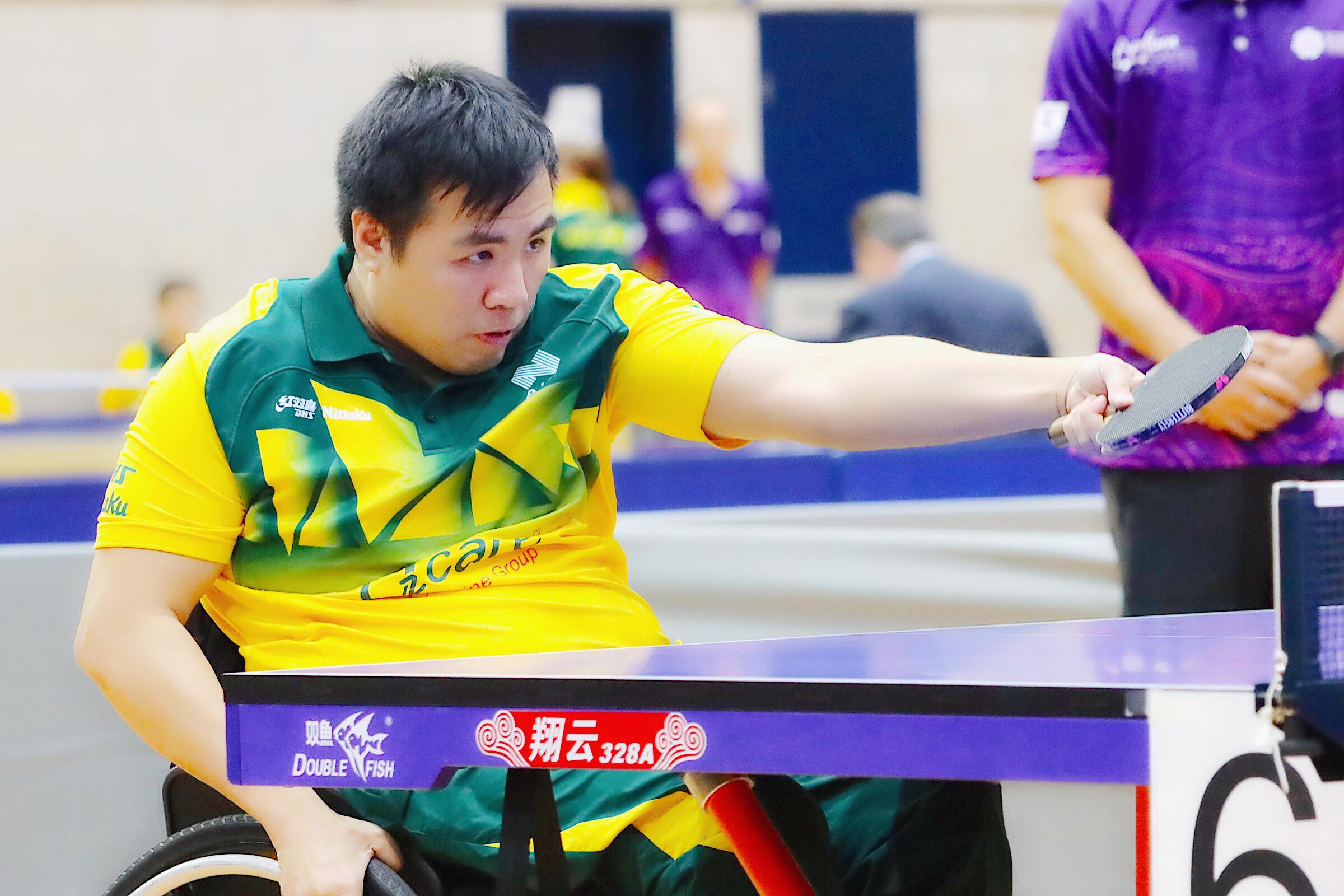
Jessy Chen playing para table tennis. Source: Supplied
Jessy moved from Southern China to the Solomon Islands with his family so his father could take a job as a sawmill manager in Honiara. But shortly after their arrival in the Pacific nation, their lives would change irrevocably.
Political violence erupted in 2006 and dozens of businesses owned by ethnic Chinese people were looted and burned.
The racial tensions escalated after a parliamentary election, and families including Jessy's were targeted in their homes in the dead of night.
His mother was unable to help as her son, then only 16, was felled by a machete to the neck. Jessy’s father was also paralysed after being stabbed in the spine.
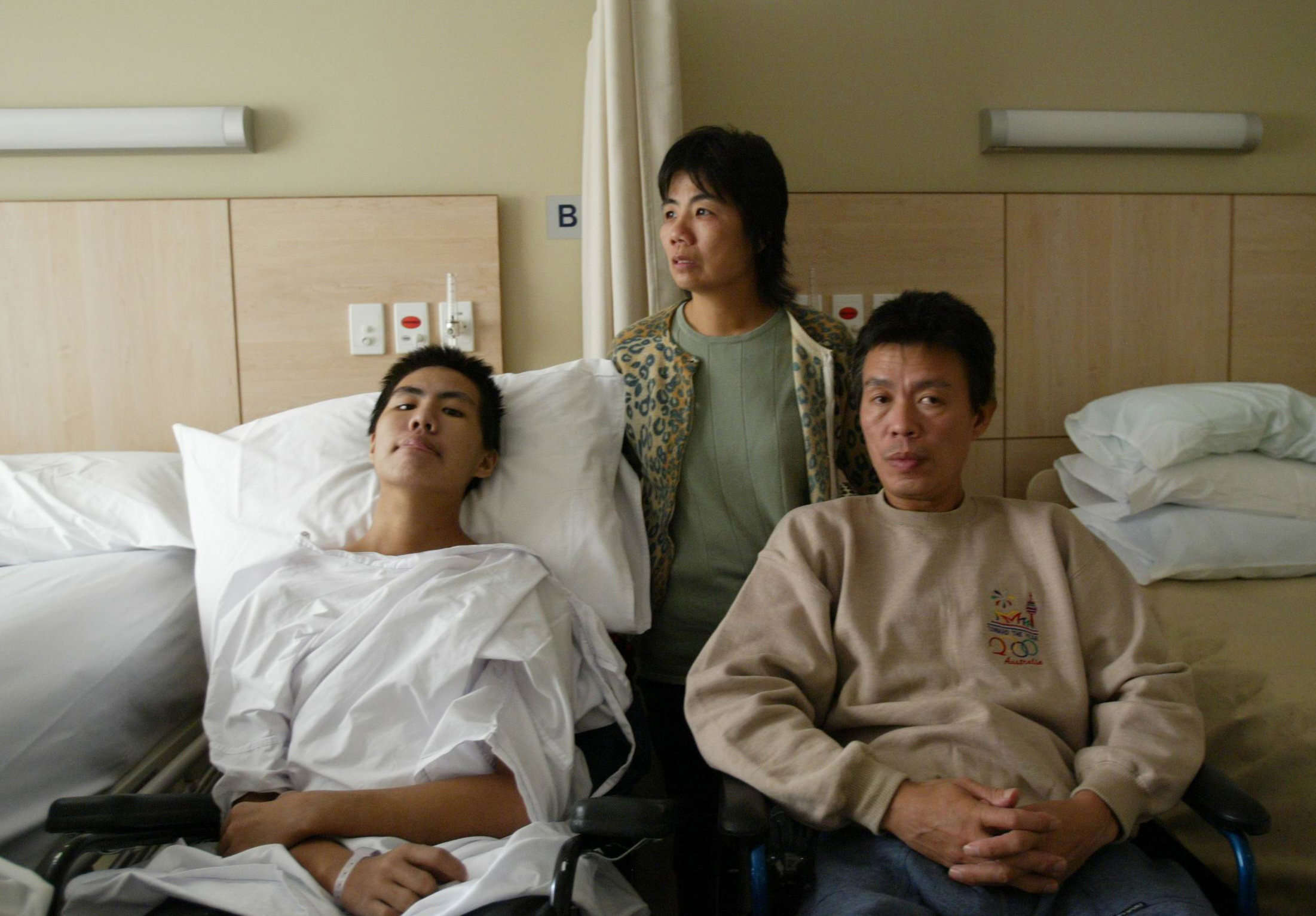
Jessy, left, with his parents in a Sydney hospital in April 2004. His father was also paralysed in the attack. Source: Jacky Ghossein/Farfax Media
“That night, they came around midnight. They rumbled through our house and they attacked me with a knife on my neck. That’s how I got my spinal cord injury,” he tells SBS News of the unknown attackers.
“It was so dark everywhere and they attacked from my back so I couldn’t see anything. When I woke up, it was three days later."
“I can’t remember very much and had to ask my family about what had happened.”
Jessy also suffered a heart attack, severe blood loss and had spinal fluid seeping from his wounds. Two weeks after the assault, he was sent to Australia for life-saving emergency care.
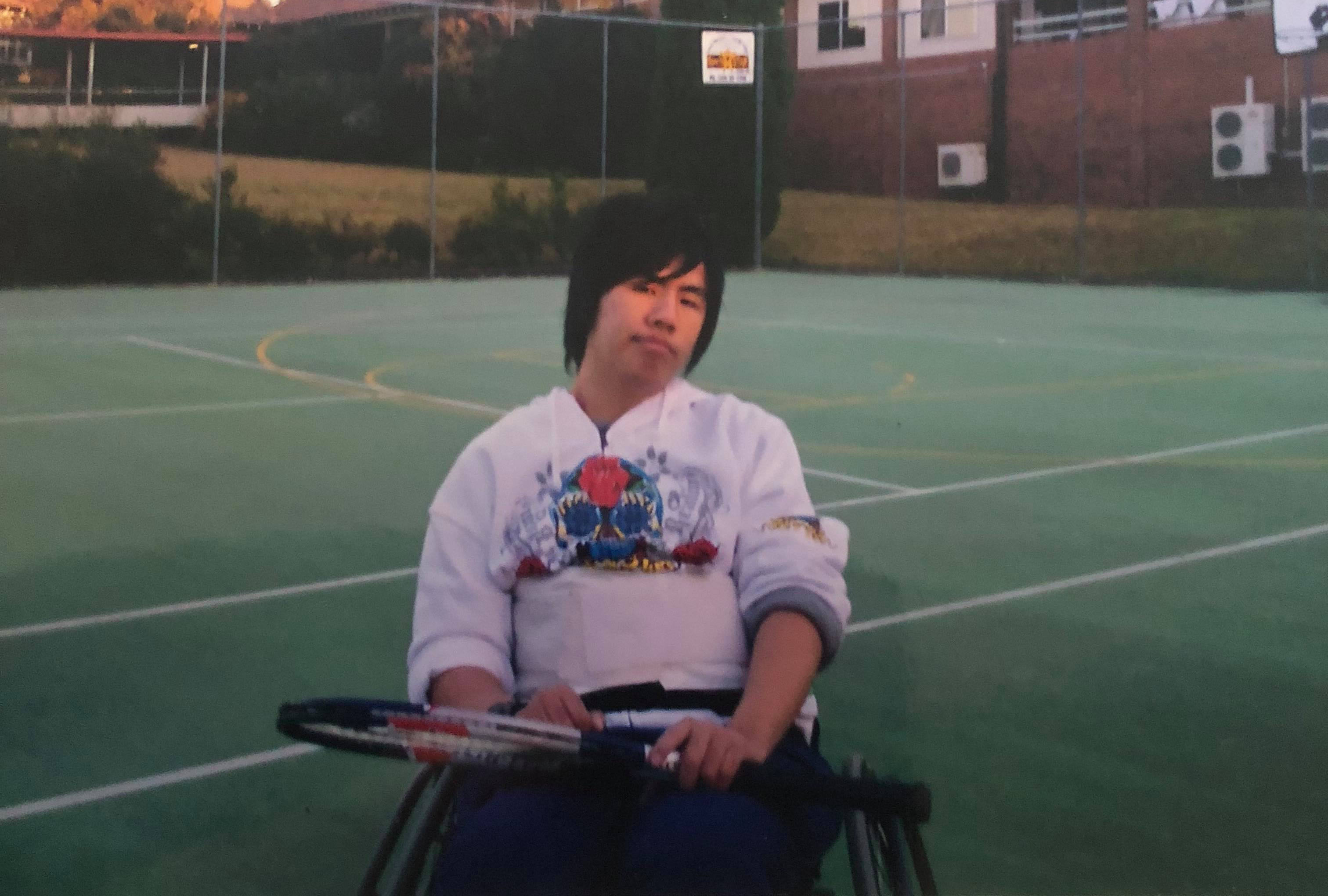
Jessy Chen has been using a wheelchair since his mid-teens. Source: Supplied
“I was granted a visa after three months in Australia because we couldn't go back to China and we couldn't go back to the Solomon Islands, so we wanted to stay. There was nowhere else to go,” he says.
His year in hospital recovery was a year of learning. Learning to accept he would never walk again, learning to speak English for the first time, and learning that table tennis could play a crucial role in his rehabilitation.
“Everything changed. I had to start everything all over again. Like, before I used my right hand and had to change to my left," he says.
"My injuries were terrible on my body, so I rebuilt my body by playing table tennis in rehab. They gave me the chance to play because I had played for fun a few times before I was injured.”
“When I started it was difficult because there was no muscle in my arms and you can’t stay in a chair that long.”
Jessy says he wouldn’t have survived without his mother by his side. During the interview, she places her arm around her son and says, “He make me very proud”.
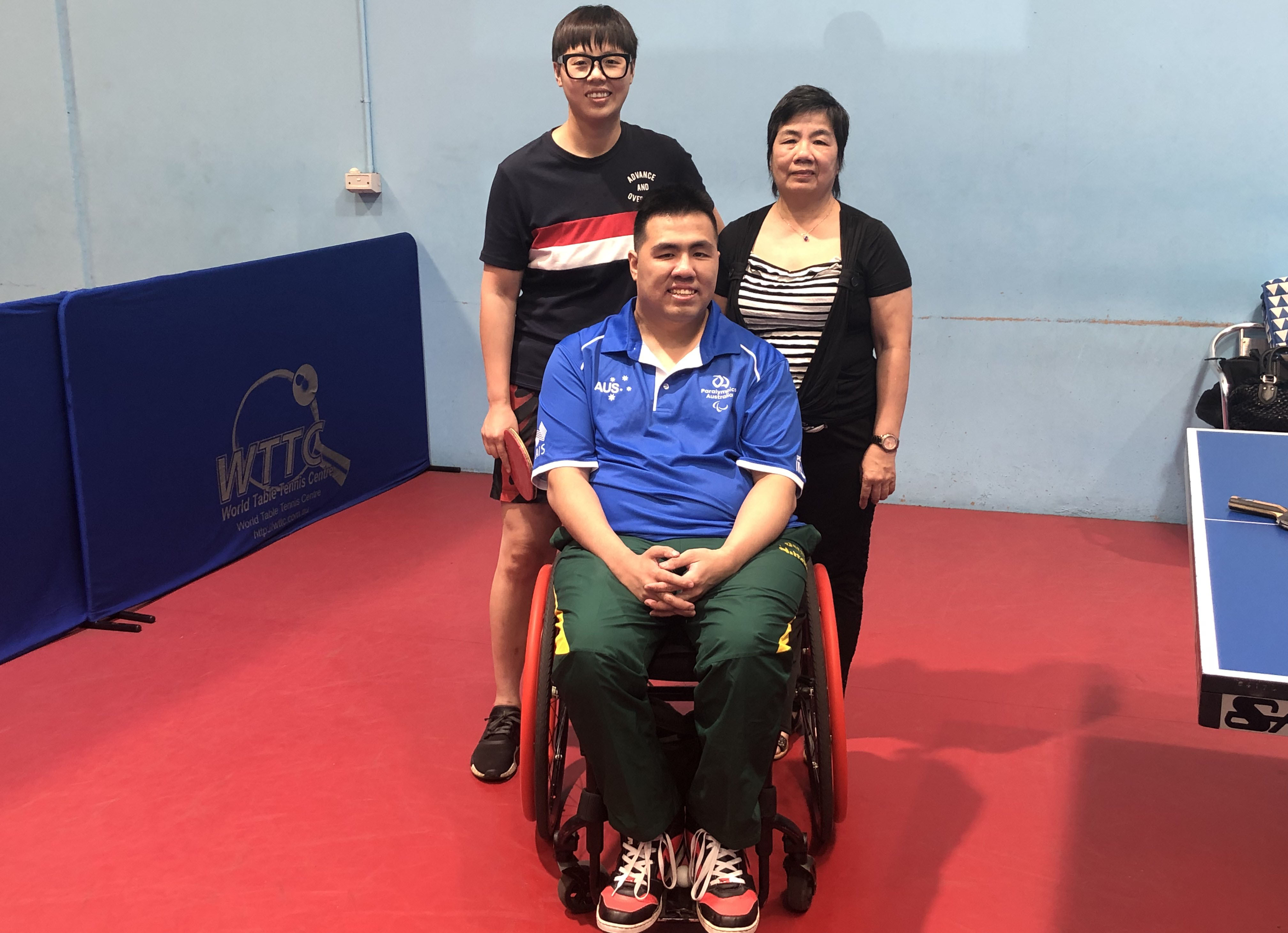
Jessy with his coach Kerry, left, and mother, Jenny. Source: SBS News
It’s not hard to see that Jessy is an eternal optimist, He says table tennis helps him feel free.
"It makes me feel more comfortable, more freedom, everything,” he says.
And he now competes at a high level.
He met his coach, Kerry, six years ago and the pair haven’t looked back. They meet three days a week to train.
"I can see that he loves table tennis,” she says.
“He’s worked very hard and trains very hard to get to this stage. He never complains about the past, about his injuries. He's just looking forwards."
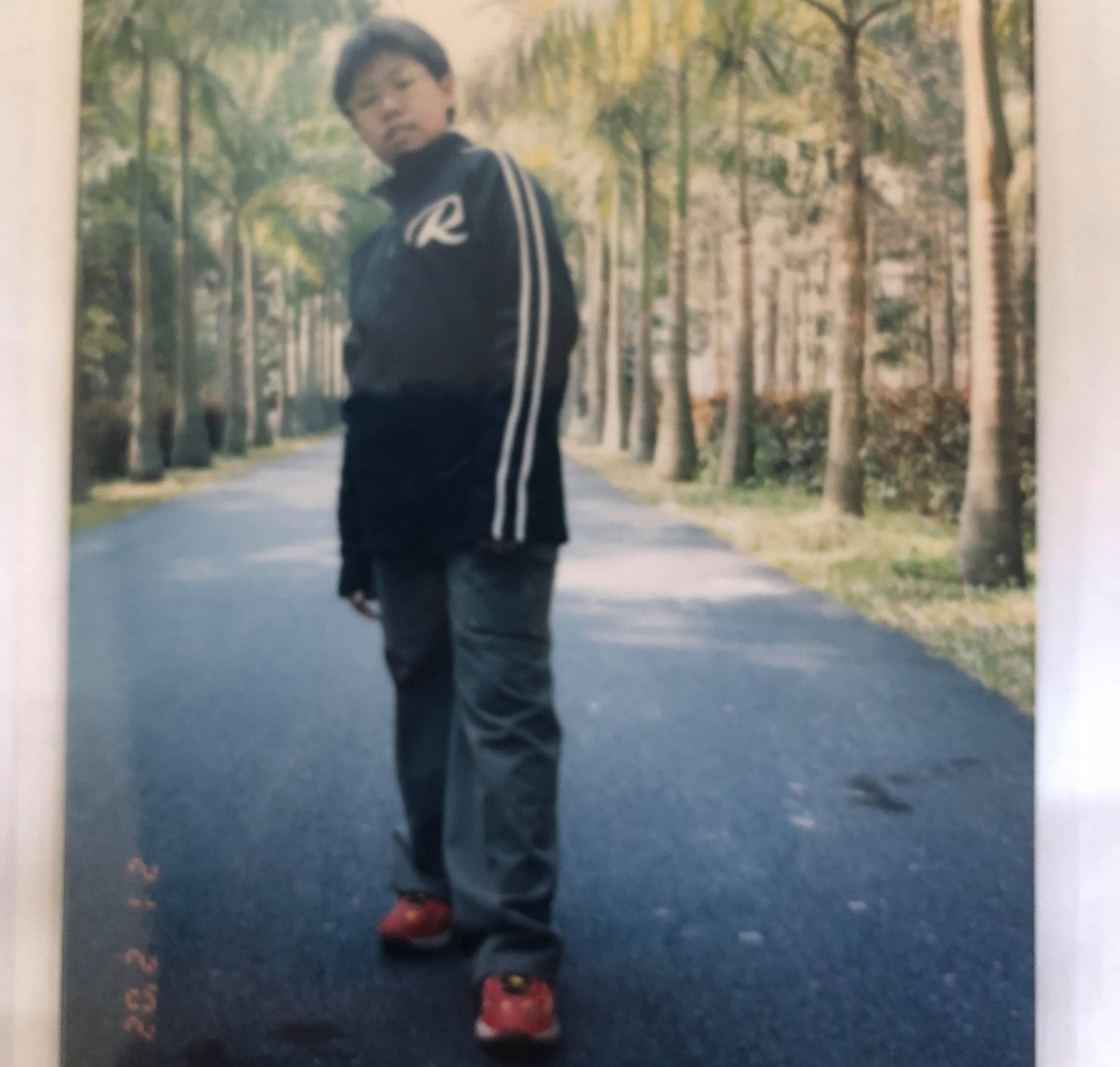
Jessy growing up in China. Source: Supplied
Jessy says finding a place in the para-sport community has helped him contextualise the tragedies of his past and the reality of his life now.
“Because I see a lot of other disabled people who may be worse than me - others are better than me – but you can learn a lot from them,” he says.
“When I see people in a worse situation than me, I just think I need to work more on myself and learn more.”
And it's that mentality that has allowed Jessy to aim for Paralympic qualification for Australia, ahead of the 2020 Games in Tokyo.
"I have to pay back the country. Australia gave me a lot. Everything. And I have to work to pay it back,” he says with a smile.
“I’ve realised I can’t do anything about [using a wheelchair]. I can’t change it. So I don’t think about it much these days. You have to move forward, look forward. You can’t look back.”
After claiming the Oceania Para Championship title this year, Jessy will learn in early 2020 if he's on the Australian Paralympics team.
"The Olympics and Paralympics are a dream for everyone who plays sport. That is the highest level for everyone,” he says.
“You can face better players and you can experience more too.”

